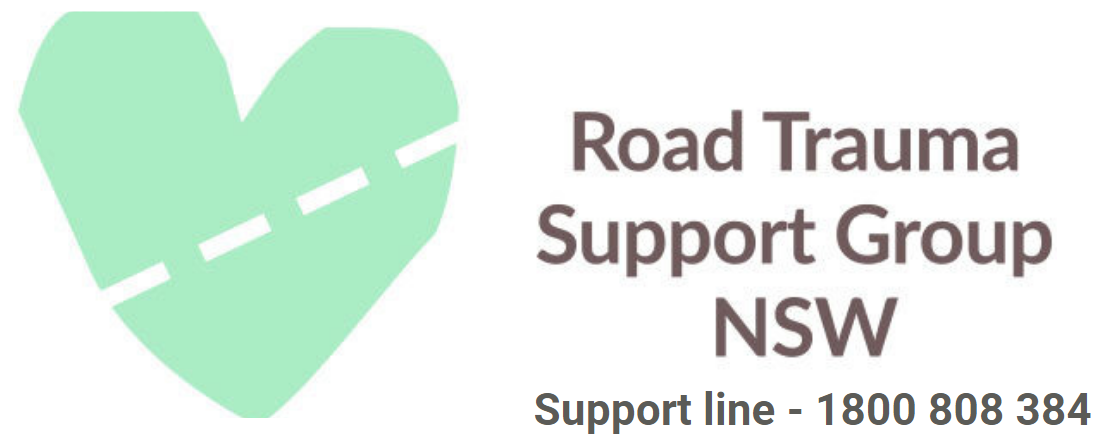Need Help with CTP (Compulsory Third Party Insurance)?
If you need help with any aspect of your CTP Claim please call the Road Trauma Helpline 1800 808 384 or email us @ info@rtsgnsw.org.au. We have dedicated trauma counsellors available 24/7 they can connect you with CTP Assist to ensure that you get full and independent help with any CTP Insurance matters and help you navigate dealing with Insurance Companies.
The current CTP system is ineffective, outdated and cruel to people undergoing a traumatic event. RTSG has undertaken research to provide evidence and solutions for improvement. RTSG research conducted by Fiftyfive5 Accenture was awarded by the Research Society of Australia in 2023. mail us @ info@rtsgnsw.org.au for a full document.


Improving the CTP (Compulsory Third Party Insurance)
-
The current CTP system is ineffective, outdated and cruel for people undergoing a traumatic event. We have proposed a review of current mechanisms in place to support all victims of road crime. We are collaborating with SIRA (State Insurance Regulatory Authority) to make change for good.
-
In a joint effort to better the lives of those affected by road trauma, the Road Trauma Support Group NSW is working closely with the State Insurance Regulatory Authority (SIRA) to improve the Compulsory Third Party (CTP) program. The collaboration acknowledges the commitment SIRA has shown to evolving the program and addresses critical areas that can enhance support for victims of road trauma. Key initiatives have been outlined for a more empathetic and effective CTP claims process.
These collaborative efforts between the Road Trauma Support Group NSW and SIRA aim to enhance the CTP program, providing a more empathetic and supportive framework for victims of road trauma. By addressing these key areas, both organisations strive to ensure a smoother and more effective process for those dealing with the aftermath of a loved one's death due to a criminal act on the road. The group invites further discussion to align strategic goals to benefit the victims the program seeks to serve.
-
Recognising the diverse experiences of road trauma victims dealing with CTP insurers, RTSG has highlighted the need for a sympathetic simplification of the claims process. The emphasis is on creating a single referral pathway for victims who have lost a loved one due to a criminal act. Concerns about potential duplication with existing referral pathways from NSW Police to the Road Trauma Support Group (RTSG) has also been addressed to avoid confusion.
-
RTSG has stressed the importance of early intervention for treatment and care, aligning with the objectives outlined in the Motor Accident Injuries Act 2017. Questions have been raised about how SIRA will ensure timely access to professional support and ongoing assistance for victims dealing with the psychological impact of a loved one's death.
-
The need for clear Service Level Agreements (SLAs) for counsellors and organisations, especially in response times for critical situations like crash scenes, has been outlined. RTSG has sought assurance that counselling services will be equally accessible in regional areas and has raised questions about the continuity of support in case of contractual changes with accredited contractors.
-
The group has sought information on how SIRA will measure and manage insurer performance beyond complaints and referrals, emphasising the importance of victim perspectives and potential public reporting of key performance indicators.
-
Efforts have been made to reduce the administrative burden on victims during the claims process, including simplifying paperwork requirements, notification periods, and the provision of ongoing medical certificates.
-
RTSG has raised concerns about the consistency of the scheme in addressing psychological, mental, and emotional injuries resulting from a traumatic death. Suggestions include clearer definitions of injury and avoiding the use of the term 'accident' for deaths caused by criminal acts.
-
RTSG has explored the responsibility for extending support to families and close partners of victims, ensuring a holistic approach to psychological and trauma support.
-
Concerns about the impact on siblings and children have been addressed, advocating for specialised training for counsellors and medical examiners dealing with minors. The group has emphasised the importance of considering the longitudinal impact on minors during the claims process.
-
Questions have been raised about the communication of contributory negligence clauses by insurers and whether SIRA will review the CTP scheme to prevent the unfair reduction of benefits.
-
The need for SIRA to regulate information gathering protocols and practices, addressing issues of private information sharing and ensuring compliance with data protection legislation, has been highlighted.
-
Concerns have been raised about awareness and communication options for claiming damages for non-economic loss, as well as the consistency and fairness of damages claims across the scheme.
-
RTSG has emphasised the importance of supporting victims through the judicial process, including court support during criminal investigations and ongoing briefings.
